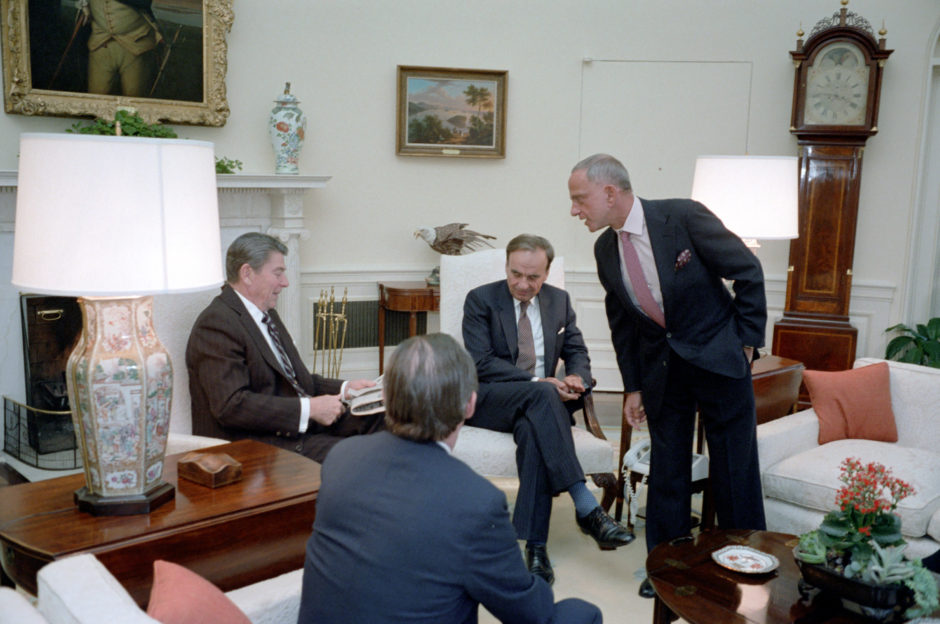The late Roy Cohn is ruthlessly and relentlessly skewered in Matt Trynauer’s bracing biopic, Where’s My Roy Cohn?
A man of many parts, Cohn was a brilliant lawyer with questionable scruples, a fierce anti-Communist who prosecuted the Rosenbergs, a political operative who mingled with Republic Party movers and shakers, a social butterfly who consorted with celebrities like Andy Warhol, a homosexual who refused to publicly acknowledge his sexual preference, and, last but not least, Donald Trump’s mentor.
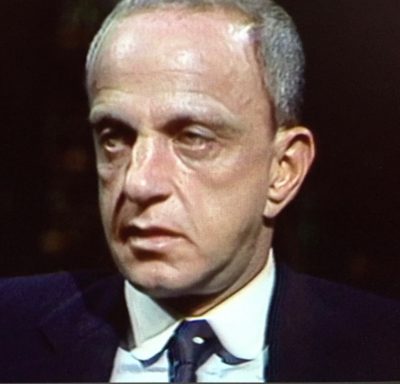
Trynauer, whose film opens in Canadian theatres on October 4, compares Cohn to a caged animal. If you opened the door, he’d come and get you.
Although Cohn was fiercely loyal to friends, he was a nasty piece of work, Trynauer suggests through a series of interviews with people who knew him. Smart, flamboyant, aggressive, manipulative, transactional, vicious, power-hungry and lacking moral character, he was a non-conformist who declined to play by the rules and lived on the edge.
And according to his cousin David Marcus, he was a self-hating Jew no less. Neither Marcus nor Trynauer provide even a shred of evidence to support this claim.
Cohn was born in New York City in 1927, the only child of Al and Dora Cohn. Al was a lawyer and Dora was a doting mother in whose house Cohn lived until her death in 1967. He graduated from Columbia Law School at the age of 20, and three years later, he was one of the prosecutors at the espionage trial of Soviet spies Julius and Ethel Rosenberg, who were found guilty of treason and executed. In Trynauer’s estimation, their trial was a “pathway to power” for Cohn.
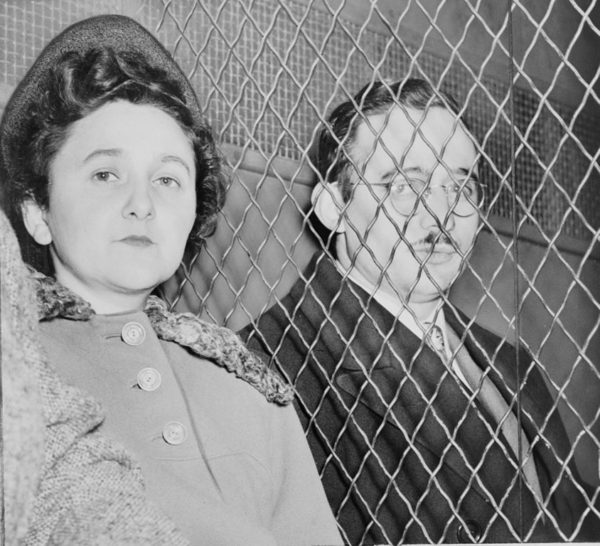
A closet homosexual who was involved in the unmasking of gays in the U.S. State Department, Cohn worked for the director of the FBI, J. Edgar Hoover, who recommended him to U.S. Senator Joseph McCarthy. Cohn was McCarthy’ chief counsel during infamous congressional hearings in 1954 to ferret out real or imagined communists in high places. Cohn was not just playing an assigned role. He sincerely believed that communism was a “criminal conspiracy” bent on overthrowing the U.S. government.
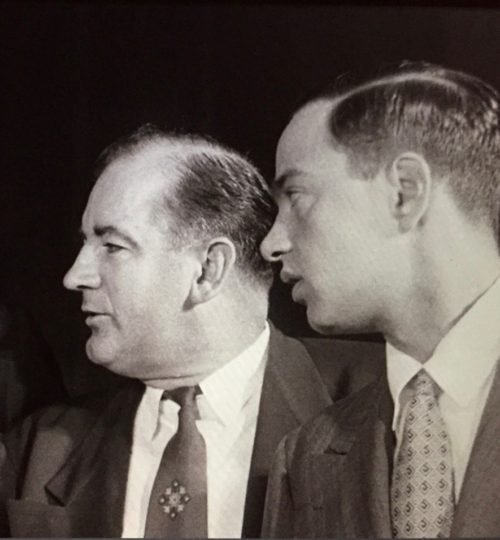
In 1955, Cohn set up a private law practice in New York City and thrived despite his supposed lack of ethics. “I would do anything to ensure my client won,” he says in an interview.
Cohn’s dubious methods got him indicted for perjury and obstruction of justice, but he wriggled out of this predicament.
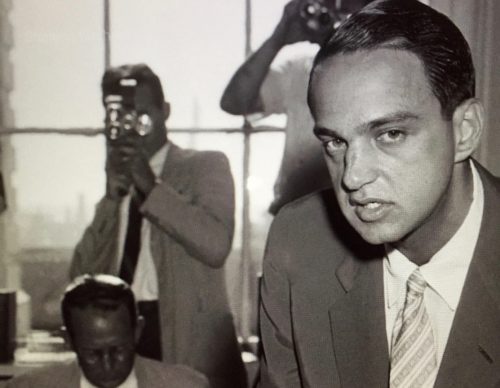
Trynauer says that Cohn was a manipulator of the press and shaped events by virtue of his relationships with newspaper reporters. “He tried to co-op me,” admits syndicated newspaper columnist Liz Smith.
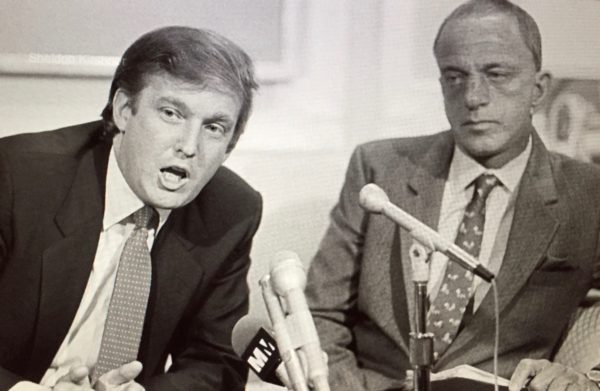
Cohn represented New York mobsters such as John Gotti and real estate moguls like the Trump family. Cohn was friendly with Donald Trump and taught him how to ingratiate himself with powerful individuals. Cohn, too, forged valuable connections to politicians on the national stage. Although he was a registered Democrat, he worked hand in glove with Republican stalwarts from Richard Nixon to Ronald Reagan.
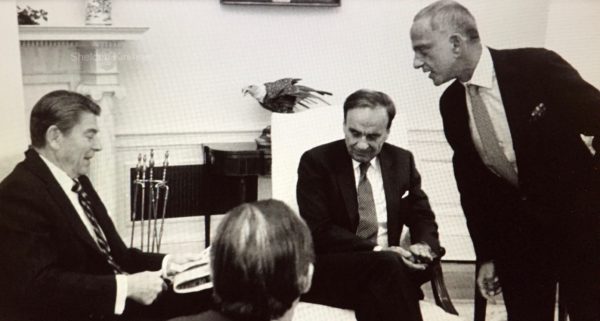
Deeply into conspicuous consumption, he owned two Rolls Royce sedans, a yacht and an Upper East Side townhouse. Being vain, he submitted to plastic surgery.
Cohn frequented fancy nightclubs and restaurants, where he met the creme de la creme of Gotham society, and was often accompanied by handsome and virile young men. He had to have sex every day, preferably with someone new. He was the “girl.”
Toward the end of his life, the Internal Revenue Service went after him for tax evasion to the tune of $7 million. In 1986, he was disbarred as a lawyer, having been convicted of stealing a client’s money. He died a few weeks later, having succumbed to AIDS. Until his dying day, he refused to admit he had been afflicted by AIDS.
This is the deeply flawed person who emerges in Where’s My Roy Cohn?
